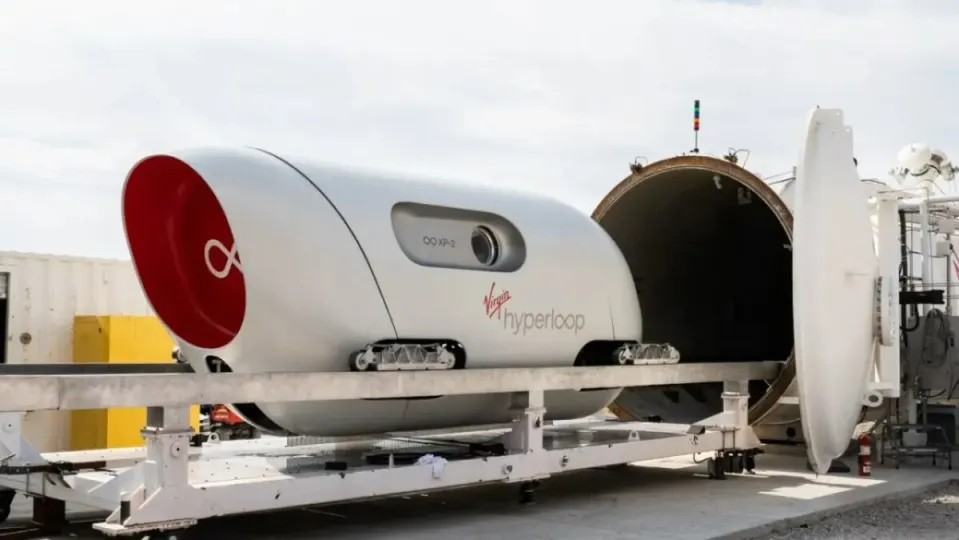It came to change mobility, the way humans moved around the Earth. A Madrid – Paris in two hours. A Barcelona – Moscow in less than four. The Hyperloop allowed us to imagine a world with hardly any airplanes. Now, this project is dead.
While there were many companies trying, it has been Hyperloop One (formerly Virgin Hyperloop) the futuristic transportation company that promised to transport us through vacuum tubes at airplane speeds, the one that is closing down, according to Bloomberg.
The company will sell its assets, close its offices, and lay off its employees. It will formally close at the end of the year, at which point all of its intellectual property will be transferred to its majority shareholder, the major Dubai port operator DP World.
A decade chasing the dream of the Monorail of the future
Since its foundation in 2014, the company raised around 450 million dollars in venture capital funds and other investments. Although there are still a small handful of startups trying to build hyperloops, the disappearance of one of the largest hyperloop companies marks the end of the dream that originated with Elon Musk’s so-called “alpha paper” in 2013.
Musk theorized that aluminum aerodynamic capsules filled with passengers or cargo could be propelled through a nearly airless tube at speeds of up to 1,220 km/h. These tubes, elevated on pylons or buried underground, could be built within cities or between them. He referred to it as the “fifth mode of transportation” and claimed that it could help change our way of living, working, trading, and traveling.
The most striking scenario he proposed was a trip from Los Angeles to San Francisco in just 30 minutes. The idea captivated the imagination of engineers and investors around the world.
Virgin Hyperloop was originally founded as Hyperloop Technologies before changing its name to Hyperloop One in 2016 and then again to Virgin Hyperloop One after being acquired by Richard Branson’s company. The company came out strong, with tens of millions of dollars in funding and a bold vision for hyperloop systems worldwide.
In 2017, the company resolved a dispute with one of its co-founders, Brogan BamBrogan, over counterclaims of harassment and sabotage. One year later, another co-founder, Shervin Pishevar, was removed amid allegations of sexual assault and misconduct.
In addition, the company was always short of money. Branson helped secure a new $50 million investment from two existing investors, which helped meet payroll obligations. The company raised $172 million in new funds in 2019, $90 million of which came from DP World, which had previously invested $25 million in the company and already has two seats on the startup’s board of directors.
The company took several important steps, such as building a test track in Nevada to verify the safety and viability of the technology. In 2020, it conducted its first -and only- test with human passengers.
The capsule only reached a maximum speed of 160 km/h, far from the original promise of multiplying it by seven.
The hyperloop has always been a dream, not a real project
Critics claim that, although the hyperloop is technically feasible, it is nothing more than technological smoke. It has been said to be an economically impossible “utopia” to achieve. It is one of those technologies that is also “just around the corner,” according to its proponents, despite apparently still years away from completion.
During the pandemic, almost all top executives and founders left Hyperloop One, which also dropped the Virgin from its name after the company decided to prioritize cargo transportation over passenger travel.
Currently, there are no full-scale hyperloops anywhere in the world. Musk’s test tunnel in California no longer exists.
The Boring Company, Musk’s tunnel construction operation, continues to dig underground passageways in Las Vegas, but for Teslas, not for hyperloops. The future, it seems, is almost the same as the present.


